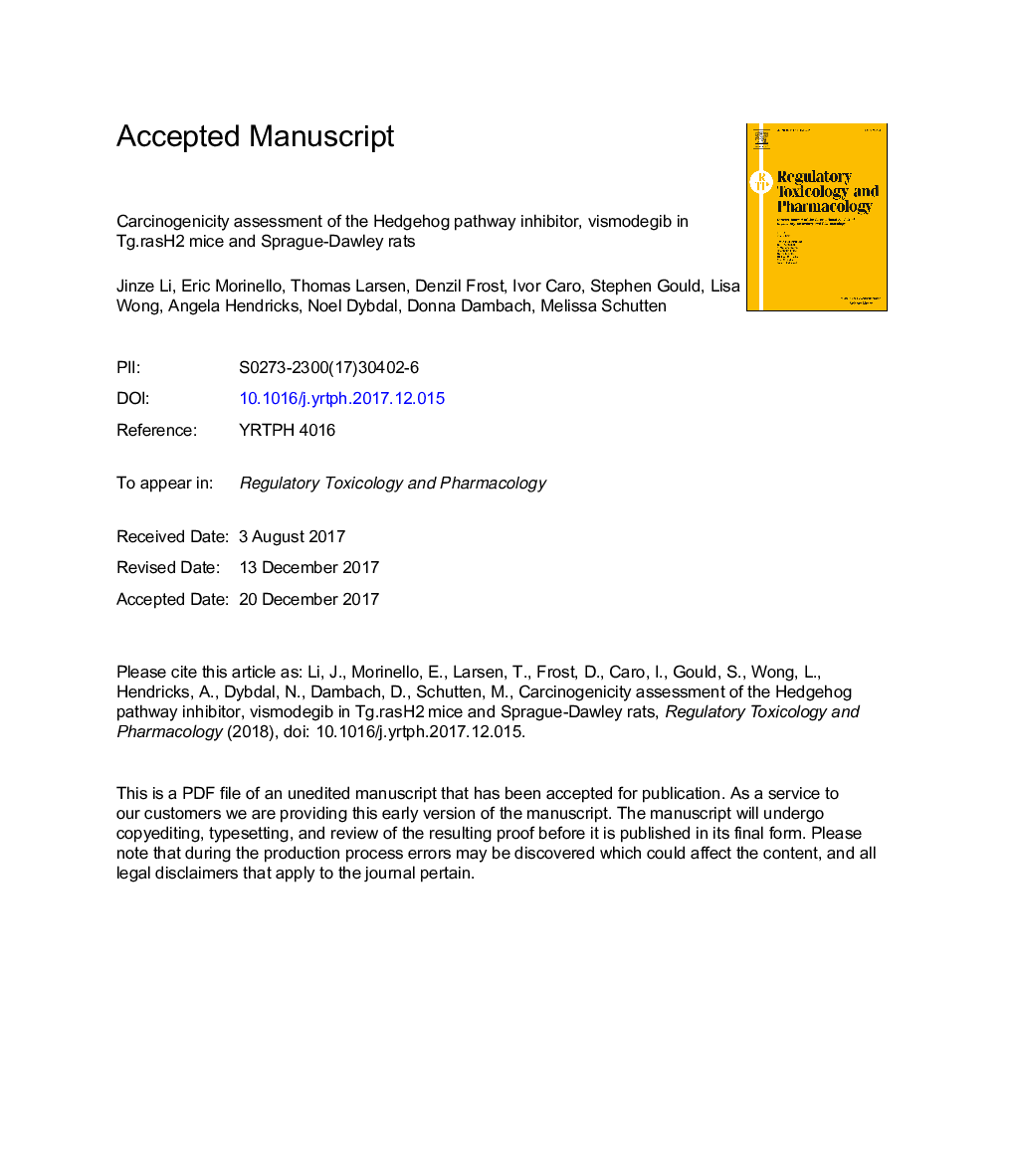| Article ID | Journal | Published Year | Pages | File Type |
|---|---|---|---|---|
| 8551747 | Regulatory Toxicology and Pharmacology | 2018 | 32 Pages |
Abstract
Vismodegib (also known as GDC-0449) is a novel small molecule inhibitor of the Hedgehog (Hh) signaling pathway currently approved for the treatment of metastatic or locally advanced basal cell carcinoma (BCC) in humans. Its tumorigenic potential was assessed in dedicated carcinogenicity studies in rasH2 transgenic (Tg.rasH2) mice and Sprague Dawley (SD) rats. Tumorigenicity potential of vismodegib was identified in rats only and was limited to benign hair follicle tumors, including pilomatricomas and keratoacanthomas at exposures of â¥0.1-fold and â¥0.6-fold, respectively, of the steady-state exposure (AUC0-24h) of the recommended human dose. No malignant tumors were identified in either species. Overall, the totality of pharmacology and nonclinical safety data (lack of genotoxicity, in vitro secondary pharmacological binding, and immunoregulatory effects, and limited effects on the endocrine system) suggests that the development of the benign hair follicle tumors may be related to pharmacologically-mediated disruption of hair follicle morphogenesis, although the exact mechanism of tumorigenesis is unclear. Hair follicle tumors have not been reported in vismodegib-treated patients. The relevance of this finding in rats to patients is uncertain.
Related Topics
Life Sciences
Environmental Science
Health, Toxicology and Mutagenesis
Authors
Jinze Li, Eric Morinello, Thomas Larsen, Denzil Frost, Ivor Caro, Stephen Gould, Lisa Wong, Angela Hendricks, Noel Dybdal, Donna Dambach, Melissa Schutten,
